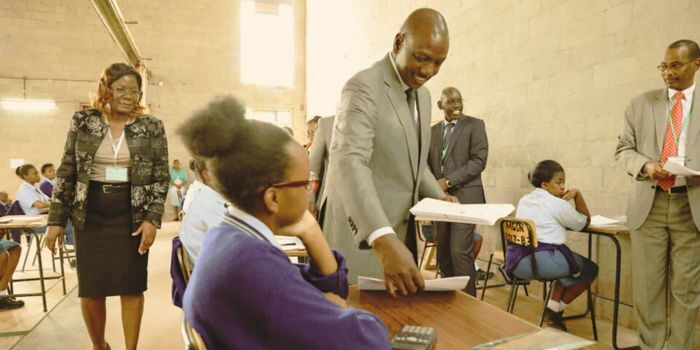Kenya’s Education Ministry is facing serious challenges just five months before the launch of Grade 10 under the Competency-Based Education (CBE) system, according to a new report exposing alarming weaknesses in schools and teacher readiness.
The report, released jointly by the Zizi Afrique Foundation and Usawa Agenda, shows that only 21% of teachers in public junior secondary schools are trained to teach Science, Technology, Engineering, and Mathematics (STEM) subjects — a major concern as these subjects form a core part of the new curriculum. Shockingly, 35% of schools reportedly have no STEM teacher at all.
These findings paint a worrying picture of teacher shortages, lack of infrastructure, and inadequate digital skills as the nation shifts to senior secondary learning, set to begin in January 2026.
While efforts are underway — including the Teachers Service Commission’s plan to hire more STEM teachers by January 2025 — the gap remains too wide, raising fears about the future of learners transitioning to Grade 10.
Speaking during the release of the report on Thursday, July 17, Dr. John Mugo, CEO of Zizi Afrique Foundation, said urgent interventions are needed.
“We still lack basic Water, Sanitation, and Hygiene (WASH) facilities in many schools, and we must now address new infrastructure needs like science labs, access to technology, and improving digital literacy for both learners and educators,” he noted.
The CBE curriculum includes digital skills and coding as mandatory learning areas. However, the report found that only 48% of public junior school students currently have access to laboratory facilities, limiting their ability to engage with STEM subjects in a hands-on way.
Even though the TSC plans to increase teacher recruitment early next year, the report warns that schools across the country are still short by nearly 100,000 teachers. This massive shortage threatens the quality and effectiveness of the new education model.
Beyond teacher and infrastructure gaps, the report also exposed serious learning challenges under the CBE system. For instance, only four out of every ten Grade 4 learners can read and understand a Grade 3-level English passage.
It also revealed a concerning lack of sanitation, with some schools having more than double the recommended number of students sharing a single toilet.
These findings come at a time when many Grade 9 students have shown reluctance to join nearly half of the available senior schools.
According to Basic Education Principal Secretary Julius Bitok, placement for 1.2 million Grade 9 learners was finalized in May — but about 5,000 out of 9,750 eligible senior schools were left unselected by students.
As the January 2026 rollout nears, stakeholders are calling on the government to act swiftly to address these deep-rooted challenges, ensuring that the education transition does not leave students behind.
Join Gen Z New WhatsApp Channel To Stay Updated On time https://whatsapp.com/channel/0029VaWT5gSGufImU8R0DO30


